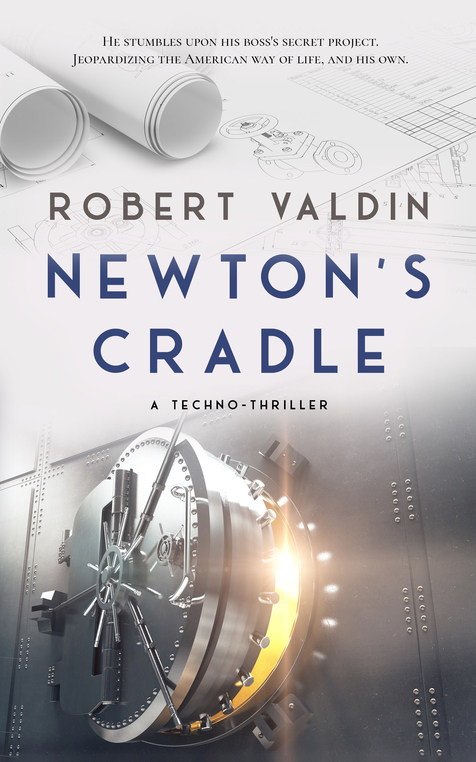
Humanity’s desperation for survival clashes with its fatal hunger for power in Newton’s Cradle by Robert Valdin. What begins as a corporate and international espionage story over power generator prototypes and mineral contracts becomes a fascinating and existential thriller about the fate of the human race, and the steep price such salvation will demand.
Terence and Duncan want to save the world by mitigating the use of non-renewable fuels, but Terence soon discovers that Duncan hasn’t been entirely forthright, and may already have the ultimate solution in hand. Pitting these allies against one another, yet also unifying them in a heart-pounding race for survival, this book hits on notes of fraternal loyalty, rampant capitalism, and the cruel global systems that keep the masses oppressed.
This is an incredibly timely book, and many sections feel ripped from the headlines, particularly the intense world of energy production and innovation. The deepdives into corporate espionage, sinister international dealings and dangerous political enemies makes the book a contemporary thrill for readers today. Bringing up much larger questions about power, altruism, greed, and morality, the plot doesn’t let readers off the hook with cheap thrills and suspense, nor does it hit its points heavy-handedly.
The beating heart of this novel are the two main characters, Terrence and Duncan, namely their relationship and the in-depth exploration of their respective motives. The uncertainty of Terrence’s relationship with Jillian – the career of secrets and bitterness from which Riley is seeking salvation – form a base of emotional complexity, making their betrayals, conflicts, reconciliation and shared purpose all the more powerful. They appear to be ordinary men forced into extraordinary crises, giving them both a relatable and authentic edge.
The narration can feel tangential, at times, even from the first few pages, but this type of declarative, nonchalant prose manages to add weight to the seriousness of the plot. There is a coldness in the storytelling, a matter-of-factness to Riley’s perspective on the world, and a dwindling innocence in Terrence that makes his transformation as a character the most interesting to observe. The narrative voice is also blunt and gruff, interspersed with short, heavy one-liners: His fingers revealed a bad habit. But then no one was perfect.
The pace drops in certain moments, and there are occasional sections of exposition that feel forced or out of place, but as a whole, the prose is well-conceived and engaging. When it comes to the dialogue, believable as it comes across in most scenes, there are over-embellished narrative explanations that interrupt the flow of some scenes, as though ensuring that readers fully understand the emotional impact of what is being said, which are not entirely necessary.
Overall, the writing is sharp and smart, with an organic flow to the inner monologuing and narration, bright dashes of humor at just the right moments, and an obvious depth of research that lends authenticity to the plot. For any reader with an interest in corporate espionage, the energy industry, climate change, or geopolitics, Newton’s Cradle should not be missed.
Book Links
STAR RATING
Design
Content
Editing
Get an Editorial Review | Get Amazon Sales & Reviews | Get Edited | Get Beta Readers | Enter the SPR Book Awards | Other Marketing Services























Leave A Comment